Deceased find new life through SIU body donation programs
A mortuary science student molded and labeled a human face Monday, March 30, 2015, for extra credit in Mortuary Science Professor Abel Salazar’s embalming lab at SIU. (Morgan Timms | @Morgan_Timms)
September 7, 2016
One of eight body farms in the world exists at SIU’s flagship campus, but it isn’t something that’s advertised.
“We don’t want people trying to find it,” said Gretchen Dabbs, co-founder and director for the Complex for Forensic Anthropology Research. “There have been problems at other facilities where … people would try to climb over the fence and steal body parts.”
At the research complex, faculty and graduate students study the effects of the southern Illinois environment and weather conditions on the human body after death. The facility keeps 35 human bodies, and it has accepted about six or seven a year since the program started taking donations in 2012.
Advertisement
Although the university has not experienced any vandalism, sometimes things still go awry. The lawnmower study came about when someone from the university’s physical plant came into the outdoor facility and accidentally mowed over a body, Dabbs said.
Students made the most of the situation and turned it into a new project.
“We did a systematic study of the variations and what size pieces you should have or how far you would have to search for remains that have been mowed over to find those pieces,” Dabbs said. “That was a fun one.”
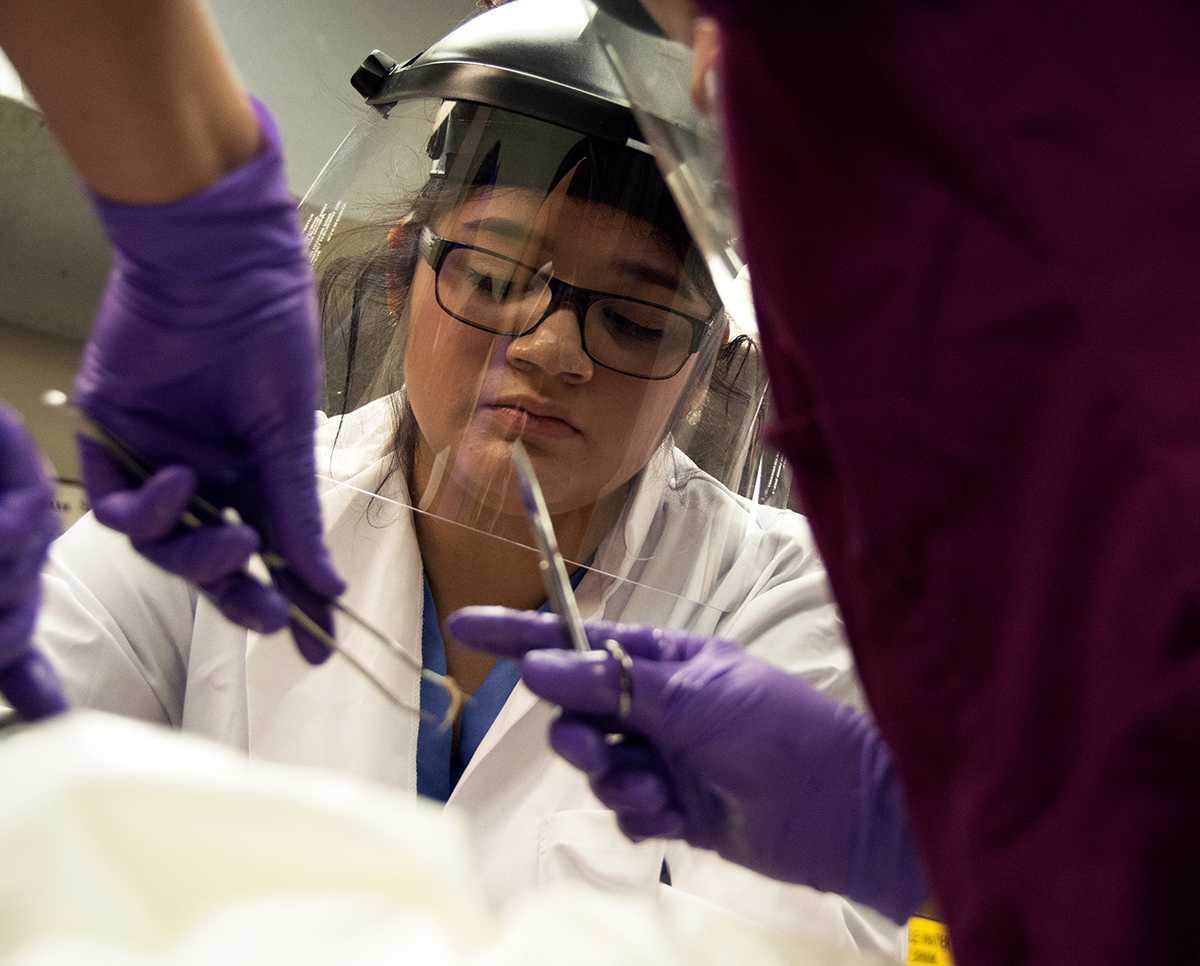
Studies focus on determining how long a person has been dead based on decomposition rates, trauma experienced throughout their lifetime and, through skeletal examination, their biological profile — things like age, ancestry, sex and stature, Dabbs said.
The bodies are usually kept in the outdoor lab for about two to three years, depending on decomposition rates. The research complex also conducts other projects, usually with pig bodies, before testing the results on human body donors to compare results.
Though the term “body farm” has become something of a colloquialism, Dabbs said it’s inaccurate and somewhat derogatory.
“We don’t farm bodies, we don’t raise bodies — it’s not [a term] that those of us in the field actually use,” she said.
Advertisement*
Research results from the facilities are also sometimes used to help law enforcement identify bodies. Dabbs said she is consulted by local police whenever a body is too badly decomposed for traditional autopsies.
This is helpful in police cases to determine which suspects have alibis based on the time frame of deaths in murder investigations, or in matching bodies with known missing persons based on biological traits or physical markings, she said.
Dabbs said the research complex frequently deals with misconceptions about their work.
“A lot of people think we’re about, like, mysticism — that we’re doing things with the bodies that are weird,” Dabbs said. “We’re just trying to do good science and understand how bodies decompose in different environments and situations.”
MORE: Recent SIU grad on the Olympics and what’s to come
Elsewhere on campus, another program is working with the deceased in a different way.
SIU’s undergraduate bachelor degree program of Mortuary and Funeral Science is the only one offered at an Illinois public university. There are more than 100 students in the program learning the skills necessary to become funeral directors, embalmers and morgue workers, program director Anthony Fleege said.
“I usually say two things to the young students — this is a profession for people [who] want to help other people, and for people [who] have a morbid curiosity about death,” Fleege said. “It’s not easy being around the deceased all the time, and last year when I did the orientation to the cadaver lab in the first week, I had one girl switch majors.”
Like the research complex, bodies are donated, but through SIU’s medical school. There are more restrictions for these donations, such as how tall or heavy-set a body can be. The medical school accepts 30 to 40 bodies a year, and turns away 50 to 100, Fleege said.
Fleege said this is so students can learn on bodies that are as complete as possible.
Students typically study facial reconstruction, embalming and cadaver dissection, Fleege said.
Also like the complex, the mortuary science program receives its fair share of misconceptions.
“I’m a pretty happy-go-lucky kind of guy, so people are surprised,” said Brian Powell, a sophomore from Hinsdale studying mortuary science. “They see funeral directors as morbid and creepy and never happy, but really it’s just about helping others.”
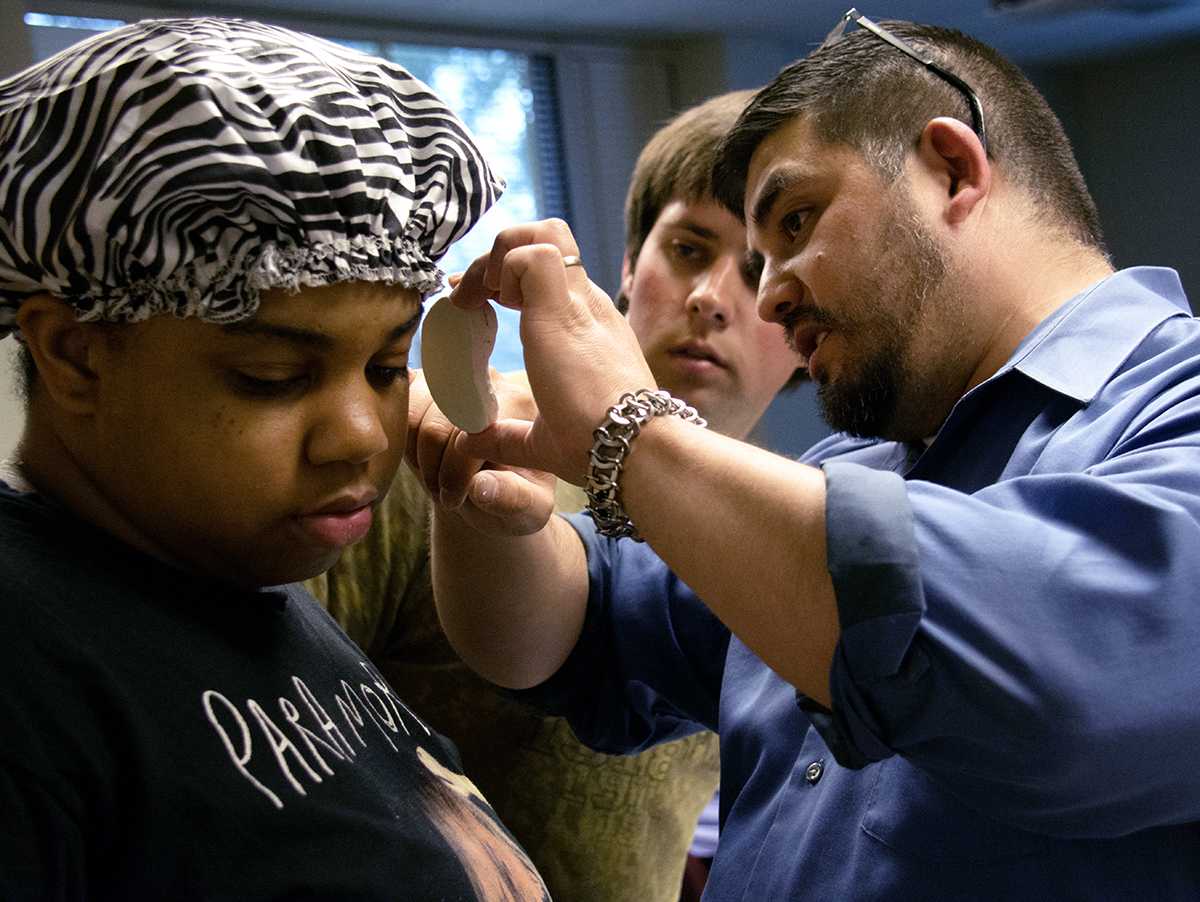
Powell, whose father owns a funeral home in Hinsdale, said he remembers growing up being comfortable around death.
“I learned how to ride my bike in the chapel. I had my birthday parties there when I was a kid,” he said. “Kids were weirded out, but I didn’t think about it. … Things like walking downstairs and seeing a body — I’m the only person that thinks that’s normal.”
Erin Pratl, a junior in the program from Oak Lawn, has also faced misunderstandings about her major.
“People will say, ‘You don’t look like a funeral director,’” Pratl said. “Just because it has to do with death people think we should be wearing skulls around our neck.”
These perceptions could be from a lack of discussion about death, said Cydney Griffith, an associate professor in the program.
“A lot of times our students don’t admit at the bars … that they’re a mortuary science major when they’re asked,” Griffith said. “Either they’re really proud of it or they don’t like to admit it.”
Fleege said everyone in the program has their own catalyst for being there. For him, it was a memory from attending a funeral when he was younger.
“Most of our students have known from an early age that this is what they want to do,” Fleege said. “You don’t just wake up one day and go, ‘Oh, maybe I’ll try mortuary science.’”
Staff writer Marnie Leonard can be reached at mleonard@dailyegyptian.com or on Twitter @marsuzleo.
To stay up to date with all your SIU news, follow the Daily Egyptian on Facebook and Twitter.
Advertisement



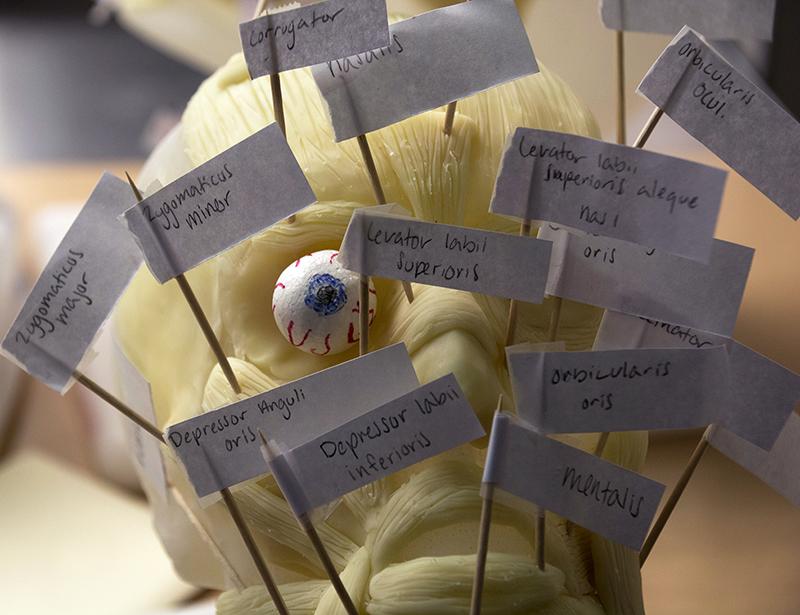



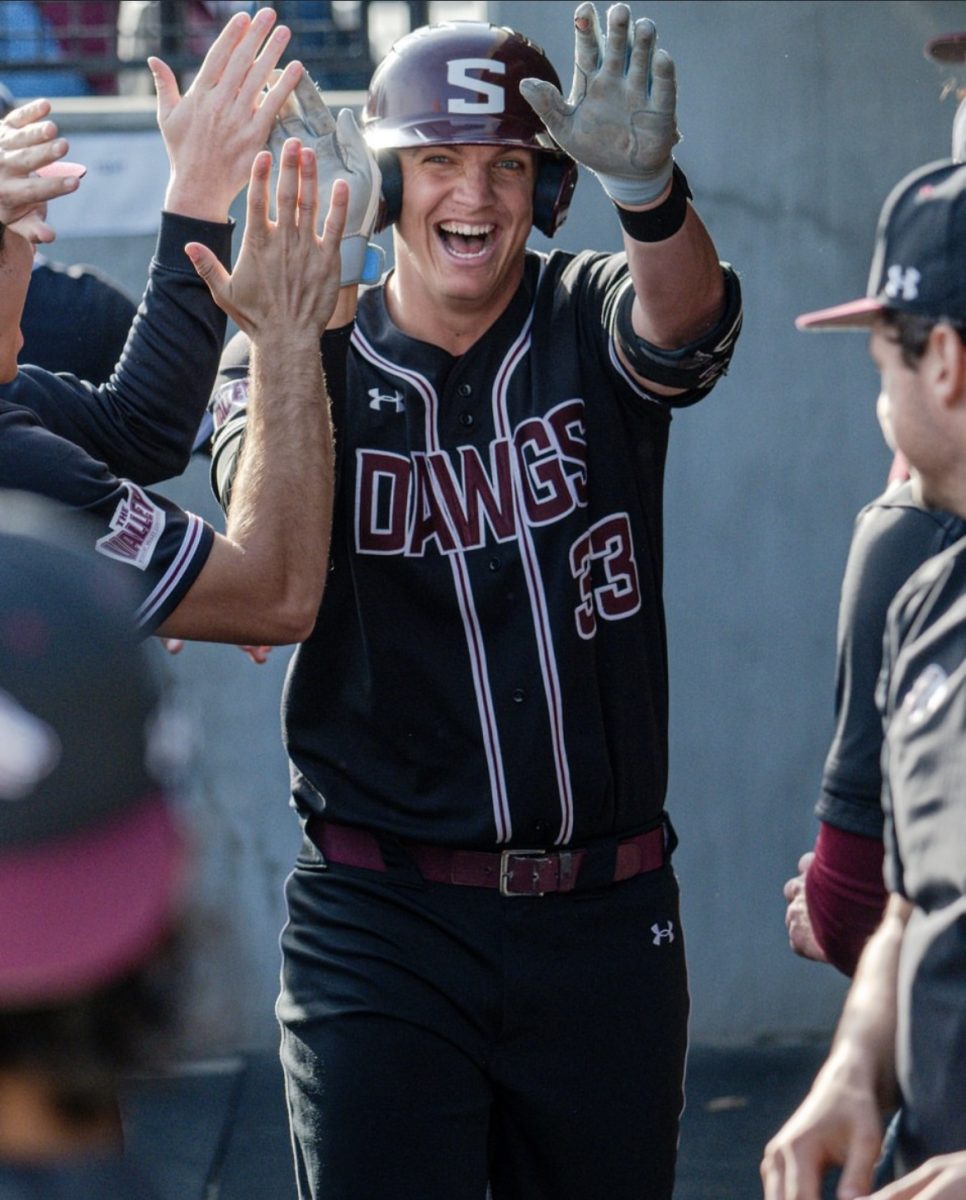
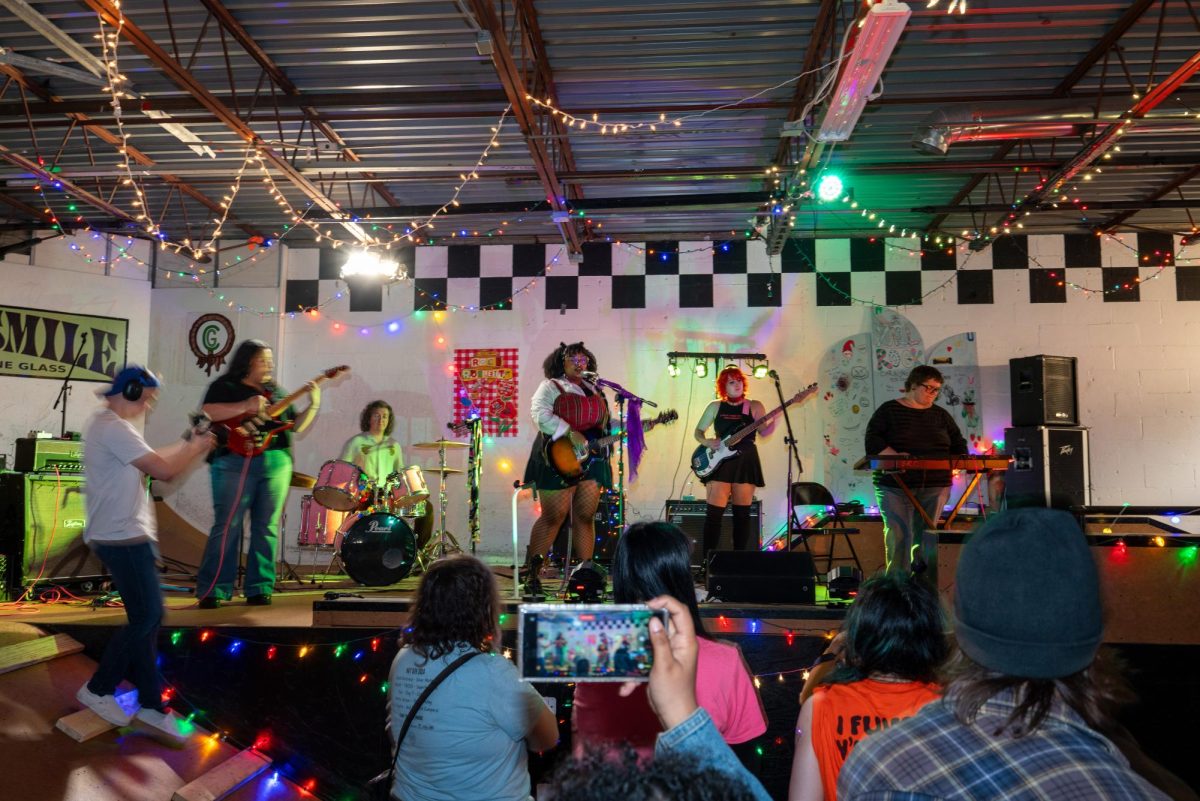
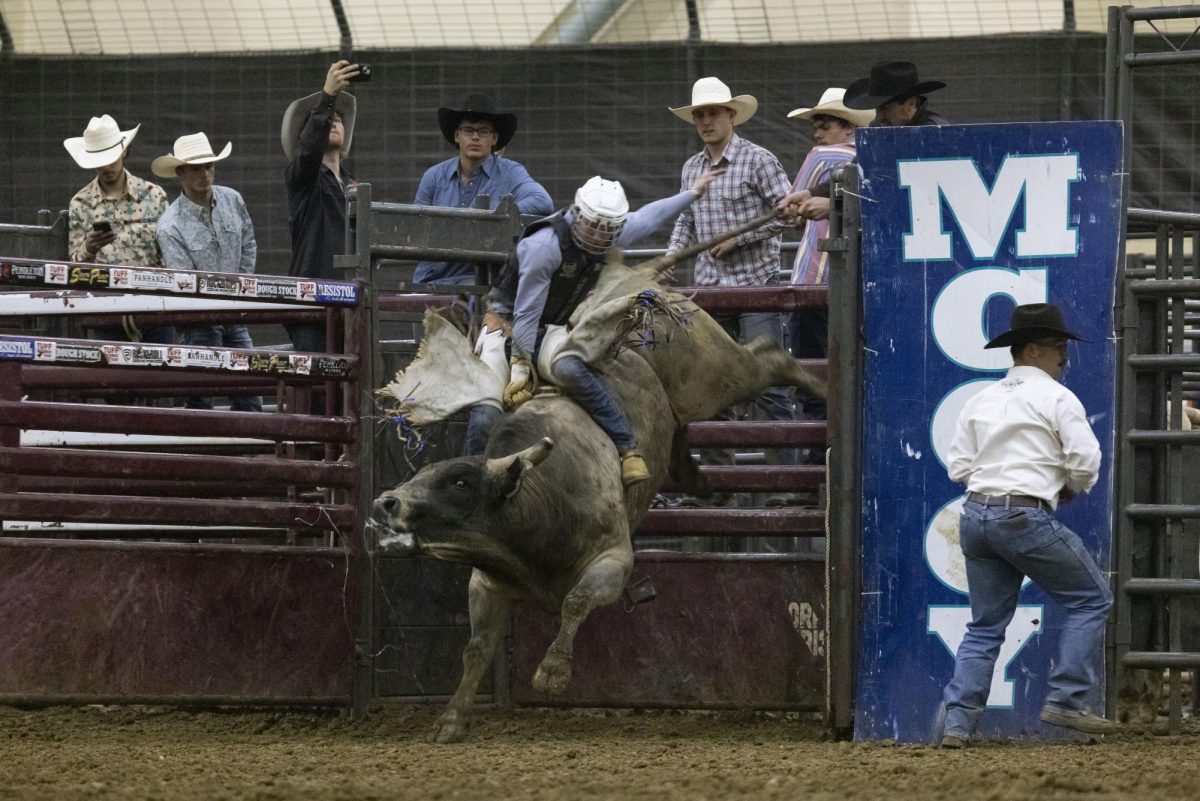
edward ingram • Apr 21, 2021 at 10:57 pm
Request (for myself) Donor Procedure information for (1)-Complex for Forensic Anthropology Research & (2)-SIU School of Medicine
Want to (pre-ensure/insure future acceptance of my remains in one of these programs. THANKS